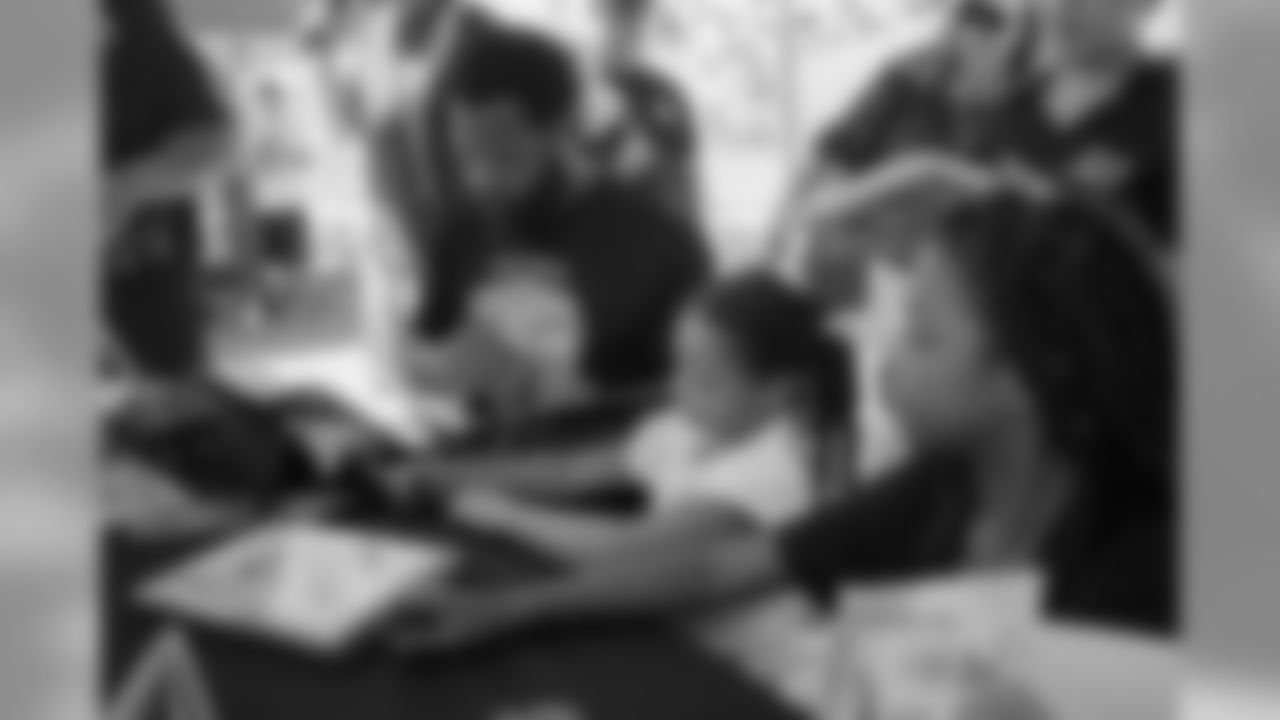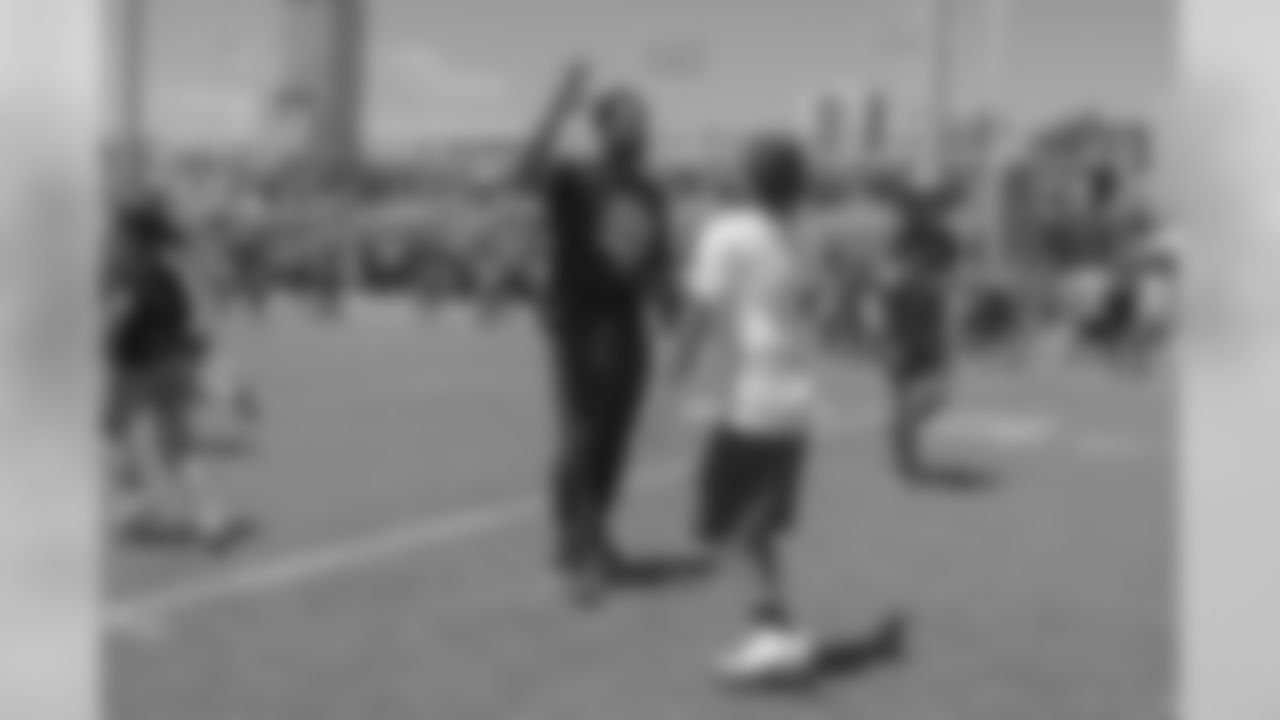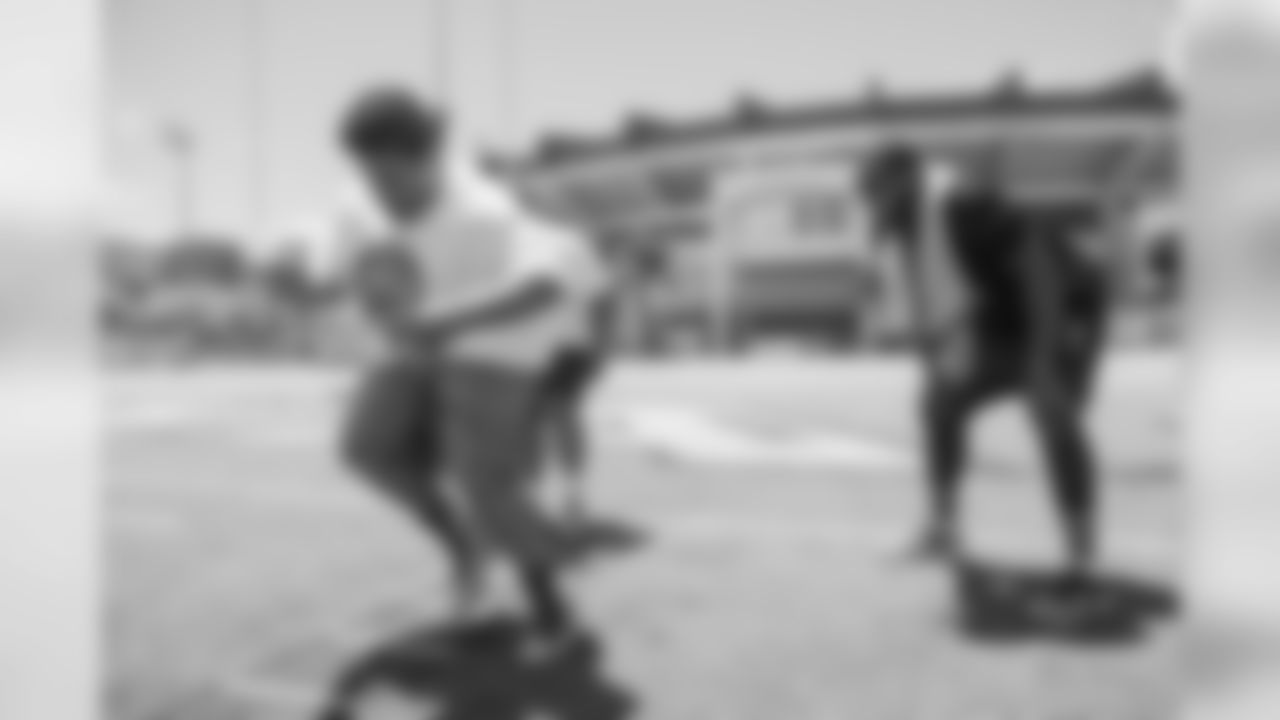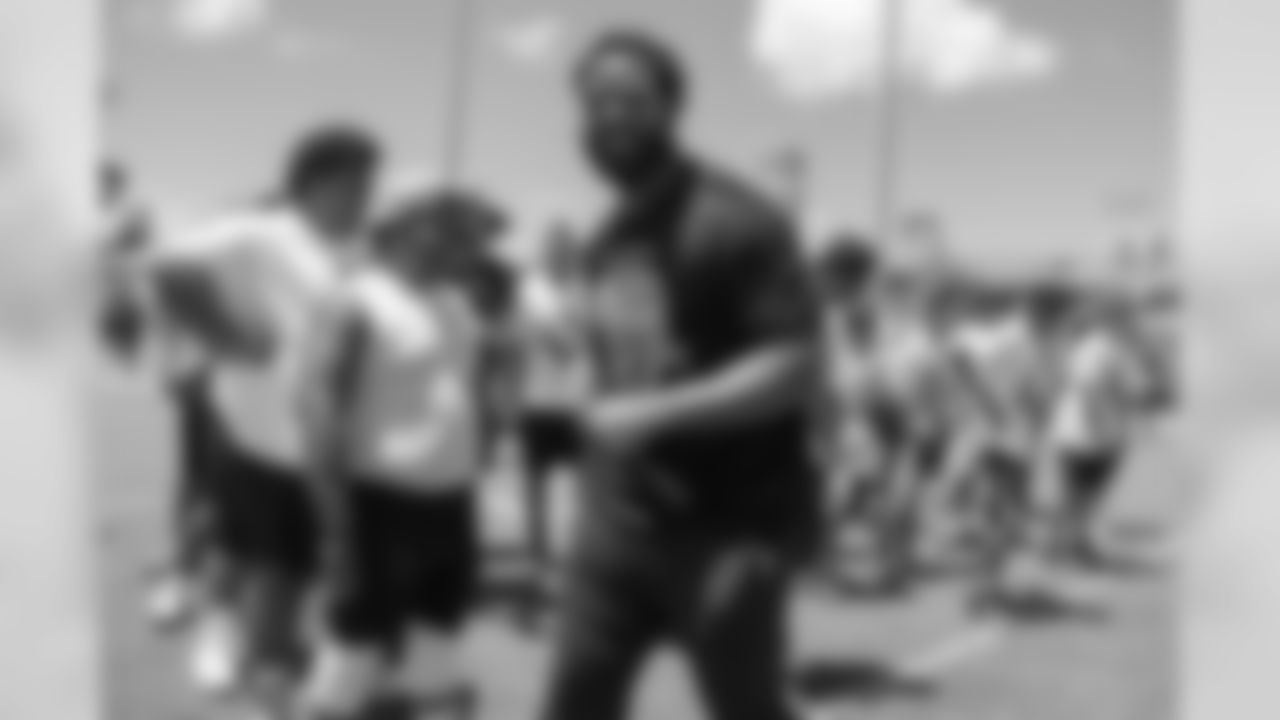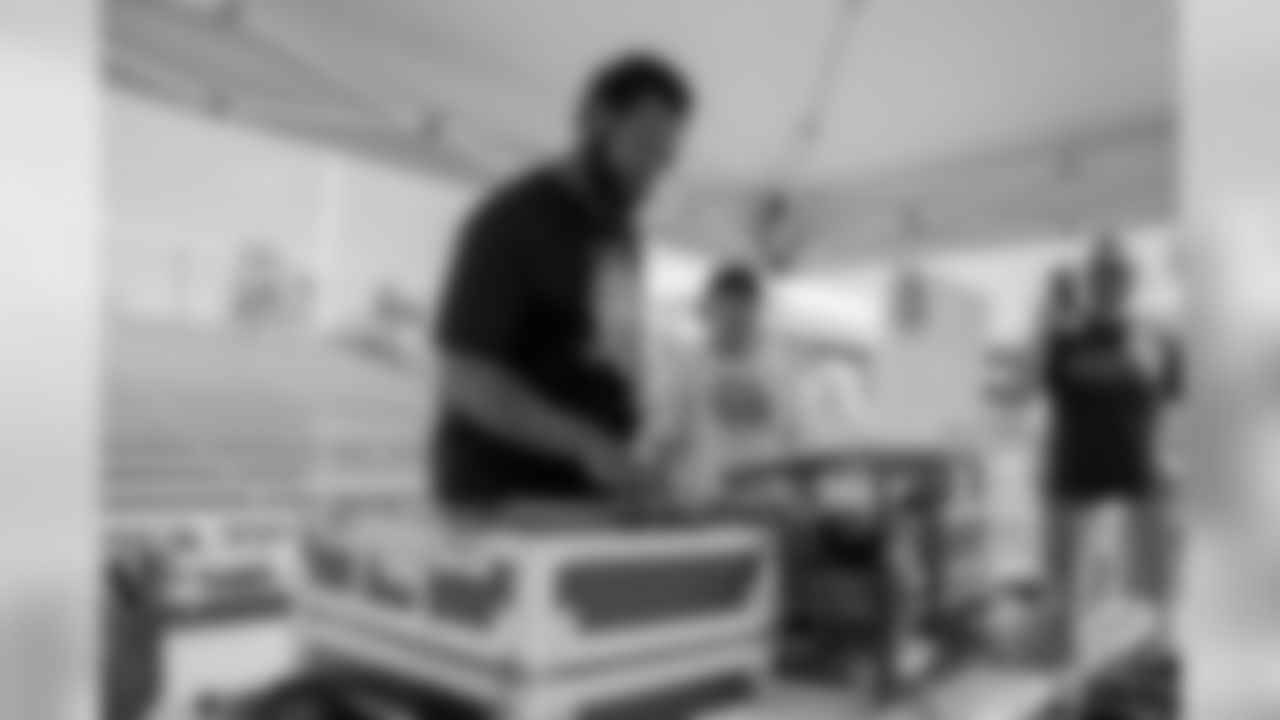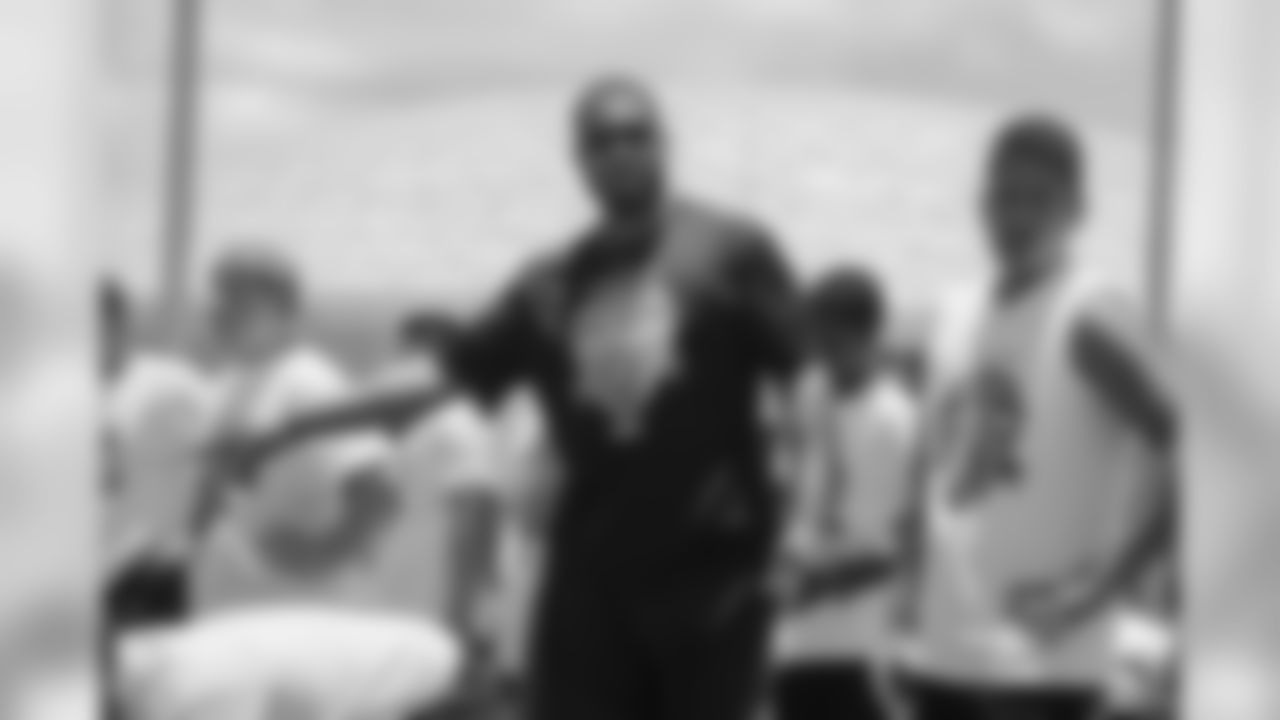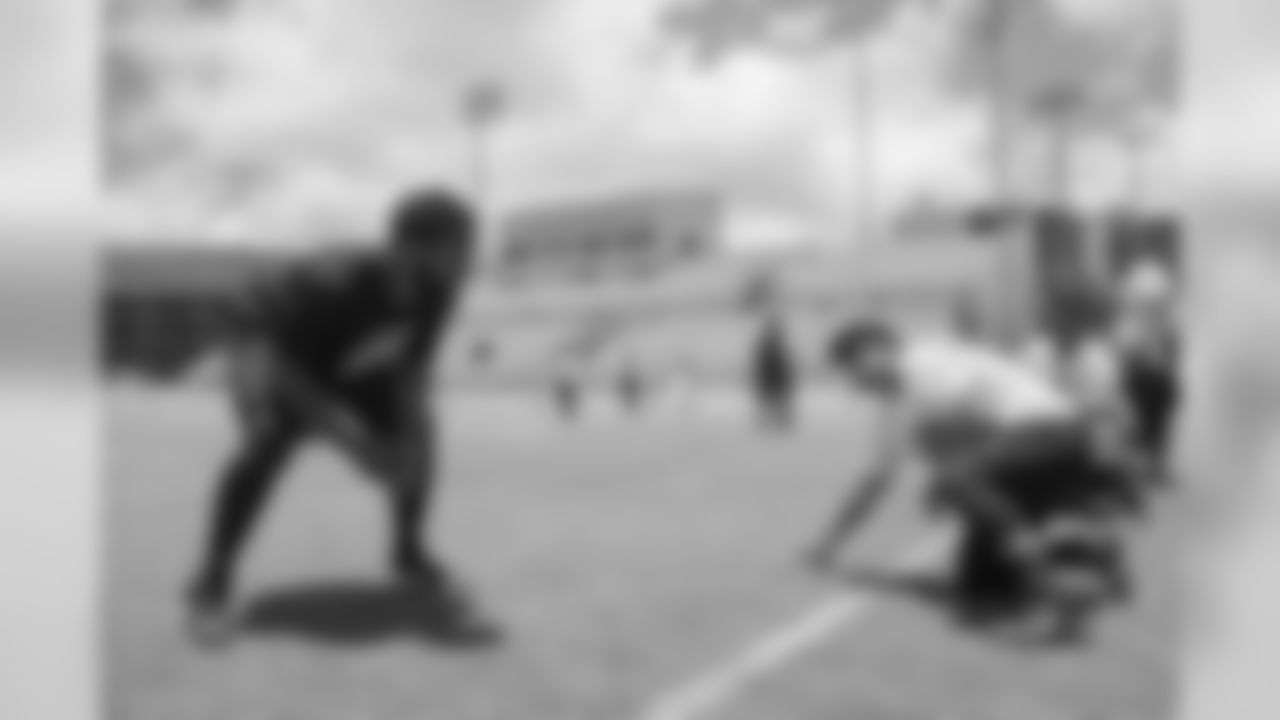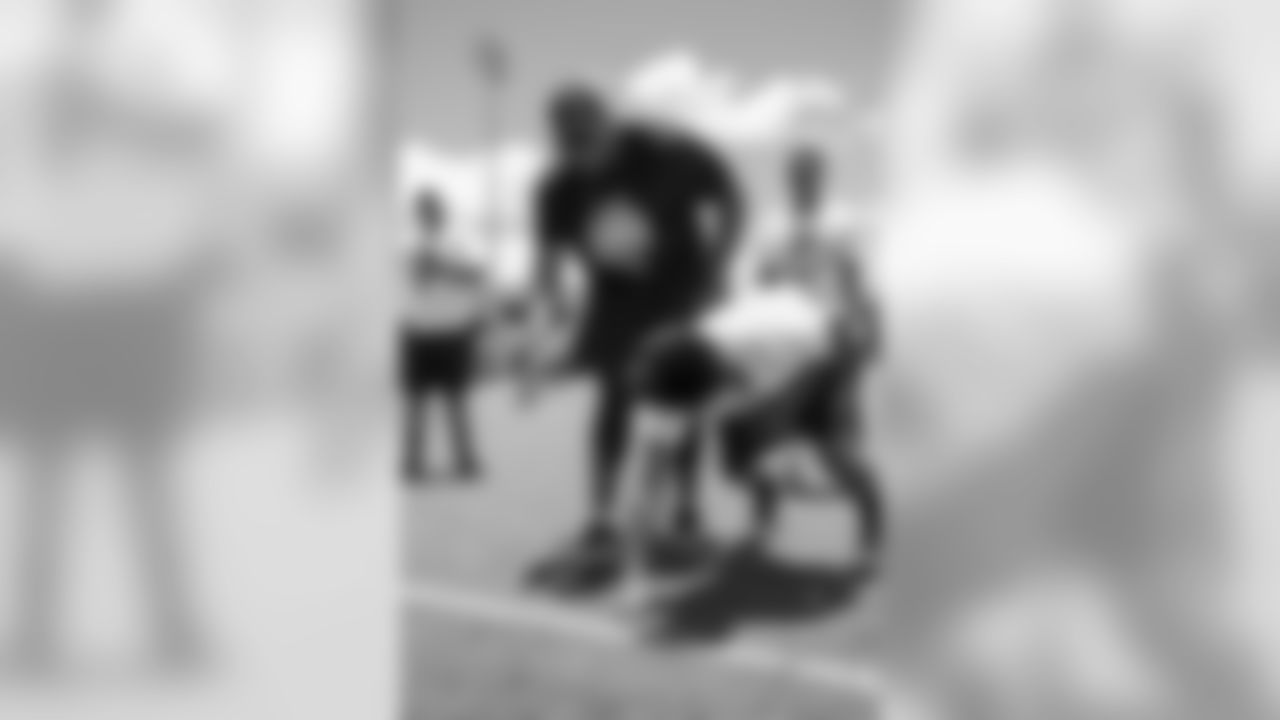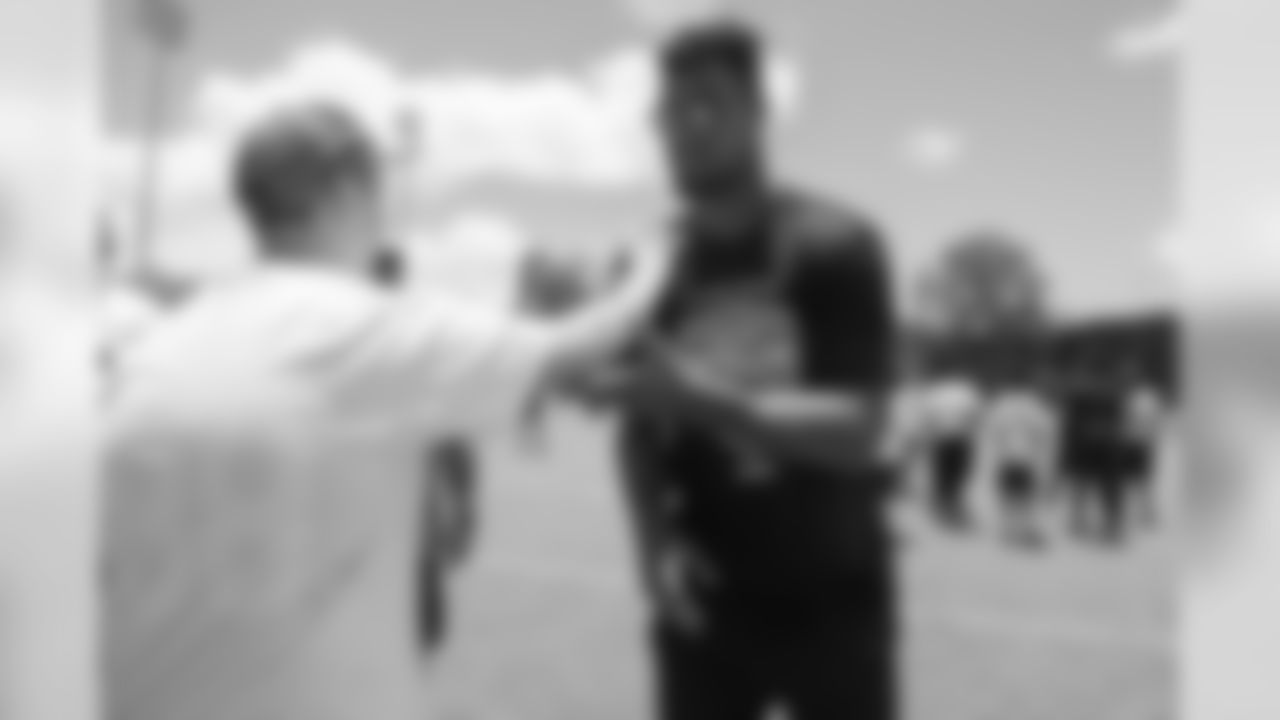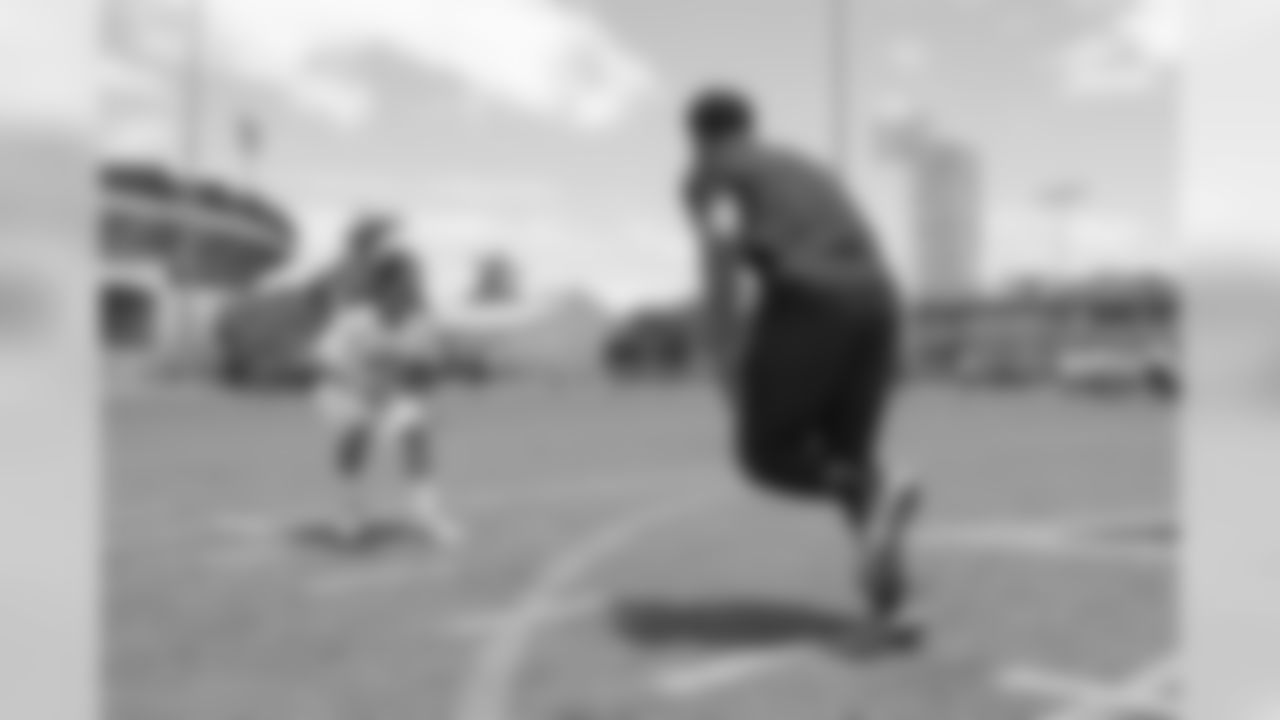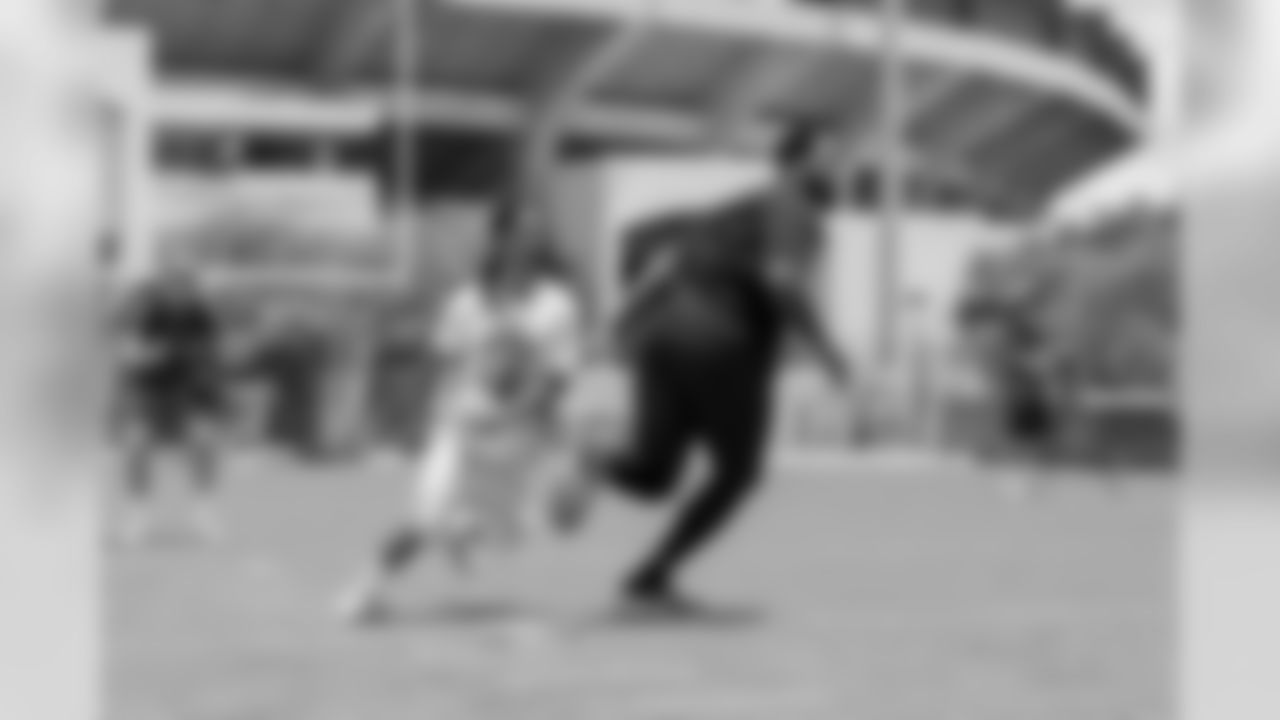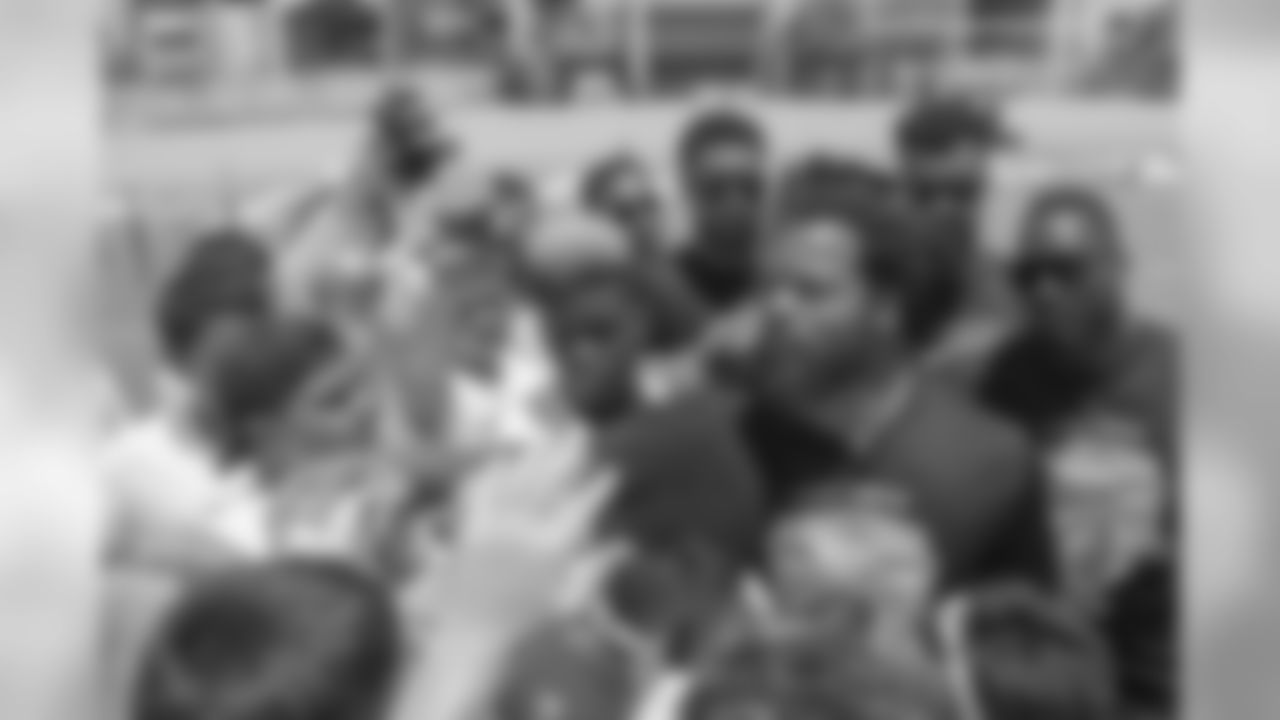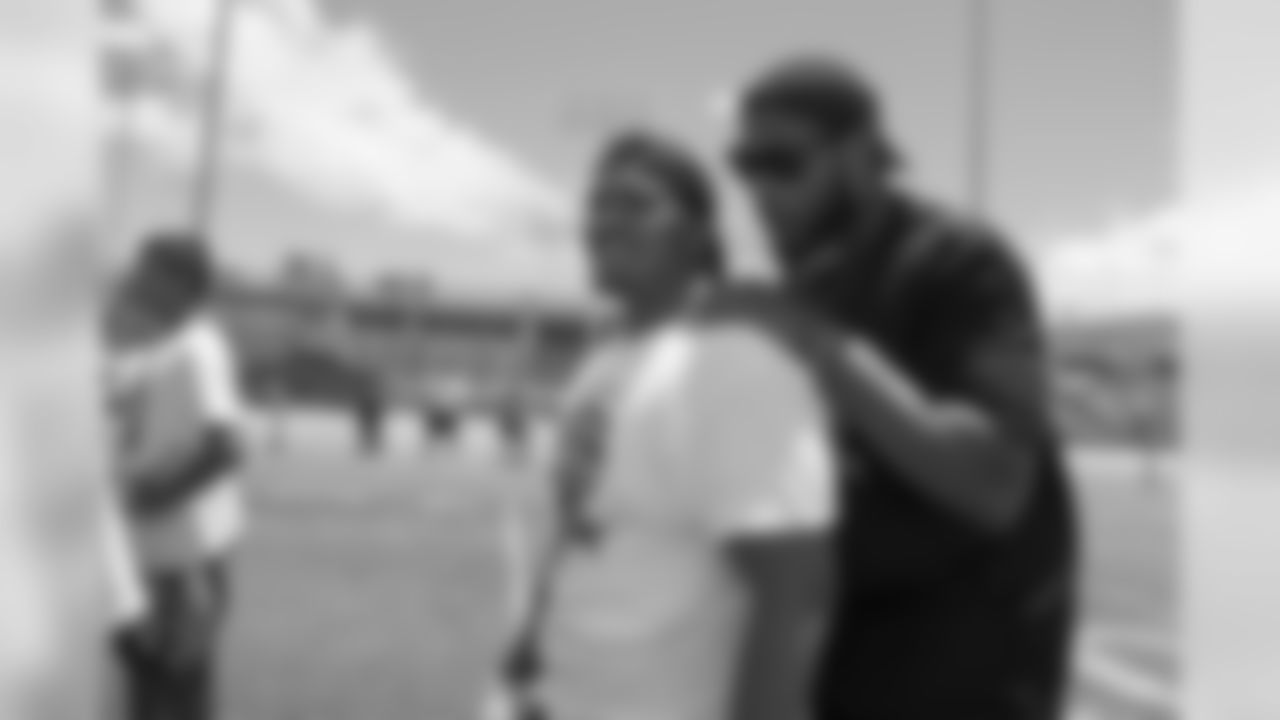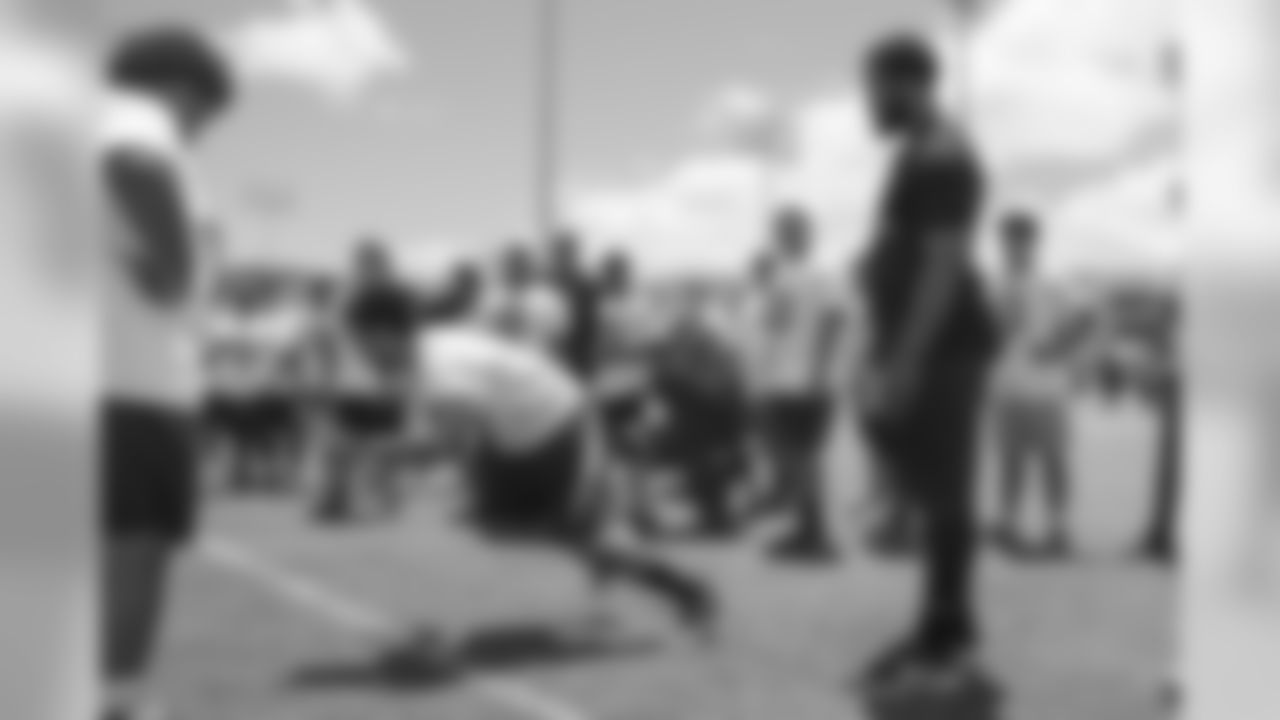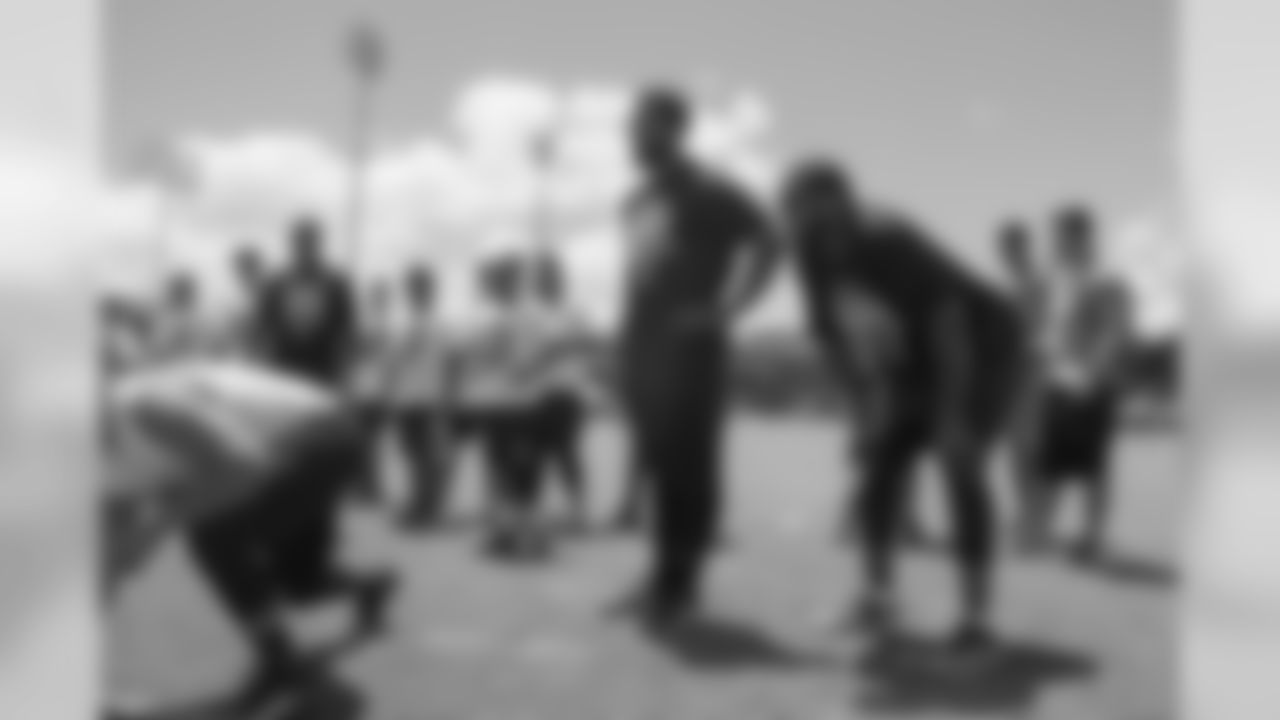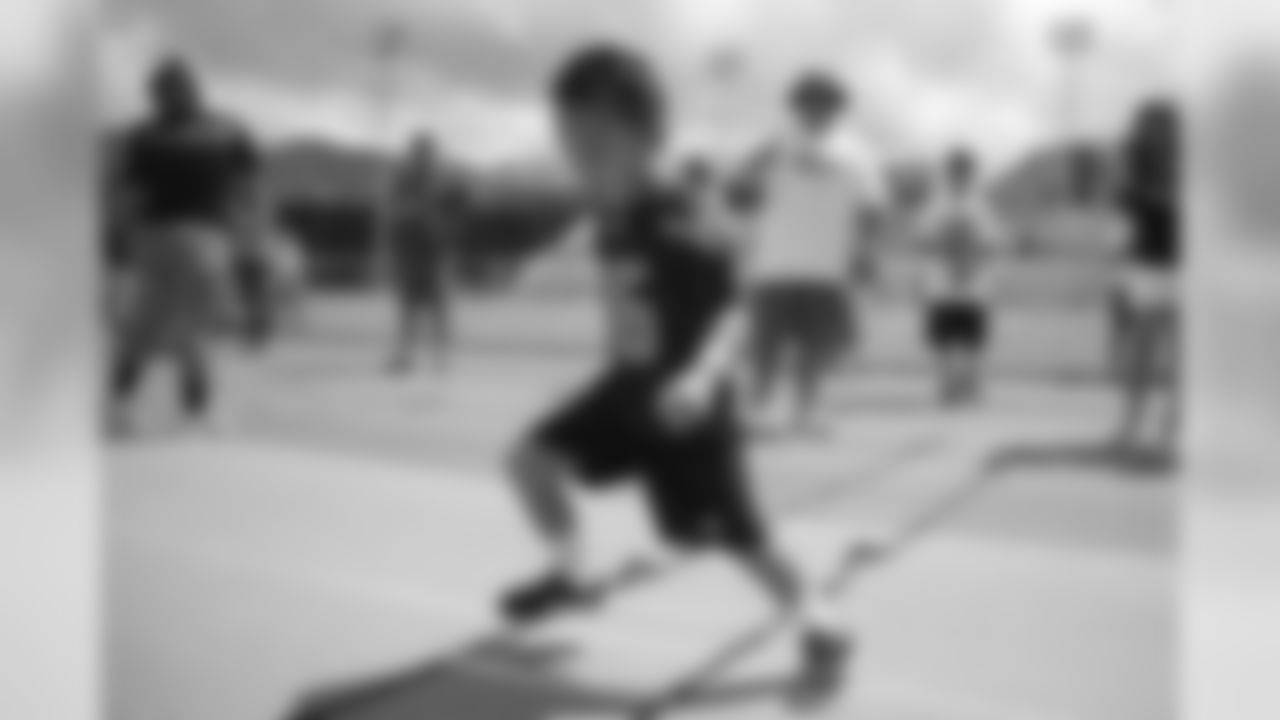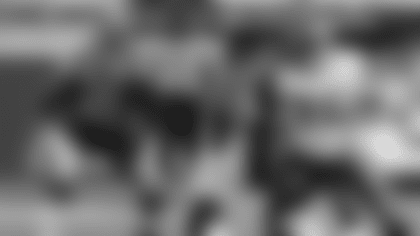HONOLULU, Hawaii— In the hills above Honolulu, young Ollie Bennett splashes in the pool with her older sisters, Peyton and Blake.
"Hey, Ollie, don't drink the water," Michael Bennett says to his 3-year-old daughter. "You're not a fish, don't drink that."
After pausing for a moment, Bennett wonders aloud, "Do fish even drink water?"
Welcome to the mind of Michael Bennett, who in addition to being a Pro Bowl defensive end for the Seattle Seahawks, is one of the more complex people you could ever hope to come across; the kind of person for whom a parental warning to a young child can quickly become a conversation on science and osmosis.
The answer, by the way, is a long, scientific way of saying some fish do drink water and some fish don’t, but that's neither here nor there. What that very brief moment in the life of the Bennett family reveals more than anything is that, when it comes to Michael Bennett, it's impossible to know what's coming next.
Former Seahawks defensive end Red Bryant, who was teammates with Bennett for part of the 2009 season, then again in 2013, described his younger teammate as a Renaissance man. It's not a bad description for somebody who is not just an elite athlete but also equal parts social activist, comedian, political commentator, mentor to younger athletes, and above all else, dedicated family man.
Take, for example, Sunday’s football camp and health clinic put on by the Bennett Foundation at the University of Hawaii. In the span of four hours, Bennett transitioned seamlessly from host to hype man to D.J. to dancer to comedian. Between wearing all those hats, Bennett sat at a table with his three kids and wife, Pele, while they all signed copies of the new children's book he and Pele wrote, Three Little Monsters Have A Wild Day.
And that was all before the football portion of the day was underway. From there he was a coach, occasional participant in drills, a shoulder to cry on for an emotional middle-school aged camper, and a stern motivator — "Y'all being lazy," Bennett said to a group of defensive linemen who weren't finishing a drill to his liking. "I'd rather you not even do it if you're going to be lazy. If you want to be great, let's start over." Bennett then finished the camp with a 9-minute speech that would have made Tony Robbins proud.
Bryant's description of Bennett, a Renaissance man, is a fitting one, but so too are the lyrics of a song written 21 years before Bennett was born.
"I think I've lived the Nina Simone song *Don’t Let Me Be Misunderstood*,'" Bennett said while his daughters/three little monsters had a wild day in the family's backyard pool. "… I'm just a different type of person. Big Red always called me the Renaissance man because I'm always into different things—music, what I read, how I'm always trying to evolve as a person. I never stay the same, and I think sometimes that gets misunderstood with me."
And that Bennett not only relates to a 53-year-old song, but that the lyrics of a woman born in 1933 fit him so well is just another example of how impossible it is to define one of the NFL's most interesting characters.
"I'm Just A Soul Whose Intentions Are Good. Oh Lord, Please Don't Let Me Be Misunderstood"
Bennett has strived to do good in his various communities—he was born in Louisiana, raised in Houston, and now splits his time between Seattle and Hawaii, Pele's home state—for a number of years. This marks the sixth straight year Bennett has hosted free camps, and he has supported plenty of other causes backed by teammates over the years. But over the past year, and in particular this offseason, Bennett has ramped up his social activism, both in terms of causes he supports, and in his willingness to speak up on causes he deems worthy, whether that meant wearing a Bernie Sanders hat last fall, or wearing a Black Lives Matter shirt during a press conference, or giving his unfiltered opinion on Colin Kaepernick's continued unemployment.
So why is Bennett so much more outspoken now than in the past? Why put so much of his offseason time into various good causes?
"With the state America is in right now with so much divisiveness, kind of divided a little bit, and me being able to have a platform, being able to bring people together, and being able to go to different parts of America or across the world, I want to just to be a part of what's going on, and helping find different ways to give back is something that I think is super important," Bennett said. "It shows that no matter the skin color, no matter the gender, we're all just people at the end of the day, and to be able to always have that connection with people and show that, no matter how much money you've got, you can always stay connected to the people around you. I'm just trying to keep pulling the layers back of how selfless we can be, how comfortable we can be with people. I'm constantly trying to find that boundary of how possible it is."
In addition to the work done by The Bennett Foundation, which fights childhood obesity through its O.C.E.A.N. programming (fighting Obesity through Community, Education, Activity and Nutrition), Bennett has also given his time and money to a number of other causes this offseason.
Earlier this year, Bennett announced he was donating endorsement money and proceeds from jersey sales to, as he wrote in an Instagram post, "help rebuild minority communities through STEAM programs (science, technology, engineering, arts and mathematics), as well as initiatives that directly affect women of color in hopes we can create more opportunities for our youth and build a brighter future." In April, he went to Haiti to support teammate Cliff Avril, who is building a school there and who also funded the construction of multiple houses in a region hit hard by Hurricane Matthew. Last month, Bennett traveled to South Dakota, where The Bennett Foundation and the Lower Brule Sioux Tribe partnered to put on an O.C.E.A.N. camp and health clinic And recently, Bennett announced his foundation is partnering with the African-led global movement iamtheCODE to get 100 marginalized girls in African into STEAMED programs (science, technology, engineering, arts, mathematics, entrepreneurship and design), as well as with multiple local organizations to start a gardening program for youth in juvenile detention.
And for Bennett, the work he and his foundation do around the world isn't enough. While hosting numerous NFL players for workouts during the offseason, almost all of them significantly younger than him, Bennett not only passes on football knowledge, he also encourages them to make good use of the platform the game provides them.
"He's not only trying to make us better pass rushers, but better leaders for our teams and better people off the field too," said 49ers defensive end DeForest Buckner, who is from Hawaii and has spent time working out with Bennett the past two offseasons. "I'm just soaking it all in and picking up as much as I can."
The message Bennett wants his fellow NFL players to embrace is that they have a unique, and in many cases, brief, opportunity to reach a lot of people and do some good with the attention that comes with an NFL career, good that can outlast a playing career.
"I try to express that to the young guys," Bennett said. "Your longevity in sports is so short, but your legacy is forever. You never know when you're going to get hurt, you never know when you're going to get cut. Your legacy has to be what you do in the community and how much you give back and how you use your platform. That's what I constantly tell young guys, 'Let's push the boundaries, let's find out who we are as people,' because I feel like sometimes as athletes, we've been stuck in a box and confined to what our thought process is supposed to be, so to venture out and be a part of the world is super important."
"Sometimes I'm So Carefree, With A Joy That's Hard To Hide"
While showing off his home gym, a pool house now filled with exercise equipment and weights, Bennett decides that one of his visitors has to get on his self-powered Curve treadmill. Never mind that you haven't warmed up, are in flip flops and have never run on one of these things before, Bennett is going to make you run hard, barefoot, and he's going to find it highly amusing.
And that earlier conversation about fish? Somehow a few minutes later, over snacks consisting of peanut butter and jelly sandwiches for the kids, and fruit off of the Bennett's lychee tree for the mainland visitors (who may or may not have needed instructions on how to eat said fruit), the conversation somehow shifts to, among other topics, one of Bennett's guilty pleasures, the TLC show, "My 600-lb Life."
When Peyton asks for lychee from the pool, Bennett throws one to his 10-year-old daughter, who makes the one-handed catch.
"Whoa, you're like Doug Baldwin," Bennett says. "Only taller."
This is the side of Bennett Seahawks fans and the world knows best. He's random, full of energy and genuinely funny. The man who goes by numerous nicknames, including Black Santa, once said he has a beard so he can "look like the richest homeless person I've ever seen;" he can turn anything into sexual innuendo, including his sack dance; and he famously celebrated an NFC championship win by commandeering a police bicycle to take a victory lap around CenturyLink Field. Moments like those don't paint anything close to a complete picture of Bennett, but they are the part of him that often draws people in, giving him that platform he so badly wants to use to make a real difference.
Rio Alexander, a close friend of Bennett's dating back to their middle school days in the Houston suburb of Alief, said "there was never a dull moment" growing up with Michael and younger brother Martellus. But Alexander, who was in town to visit his old friend, is also quick to point out that both Bennett brothers are more than just athletes or comedians.
"I think him and his brother both fall into that category (of being hard to define)," Alexander said. "We try to put people in a box, we like to make neat little packages for everyone, and we want them to fit a role… Think about how many things come out of their mouths, if you take just a snippet out of context, you can spin it any way you want it, but luckily in the long run his true character has come through, especially Seattle where he found a place that truly embraced him. Mike doesn't fit in a box, and that's a good thing."
Seahawks defensive end Michael Bennett and other NFL players including Seattle's Nazair Jones work out in Hawaii.




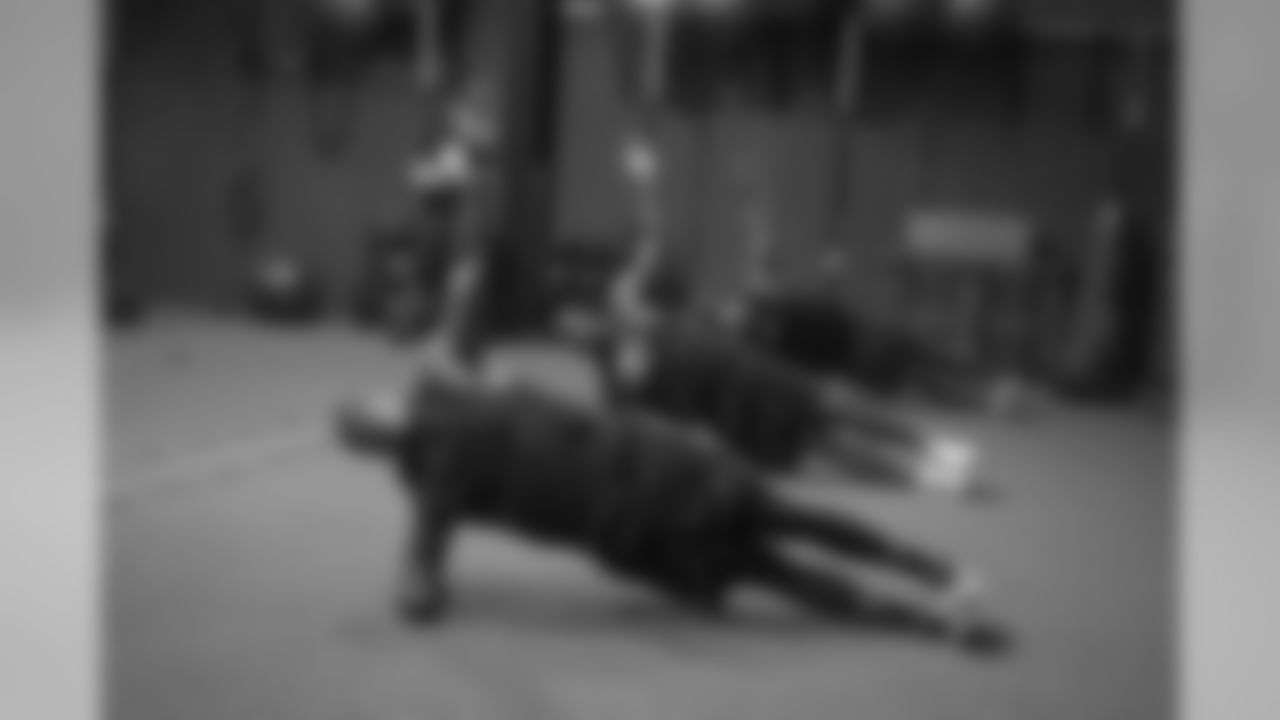
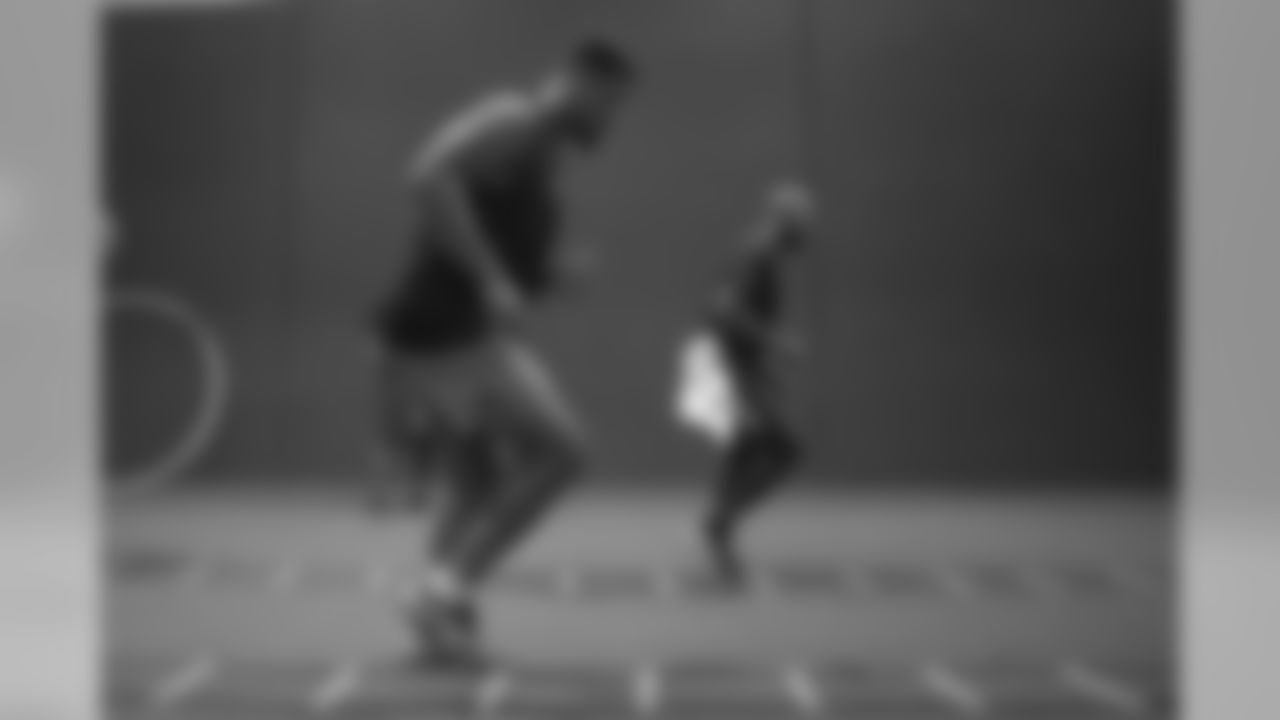
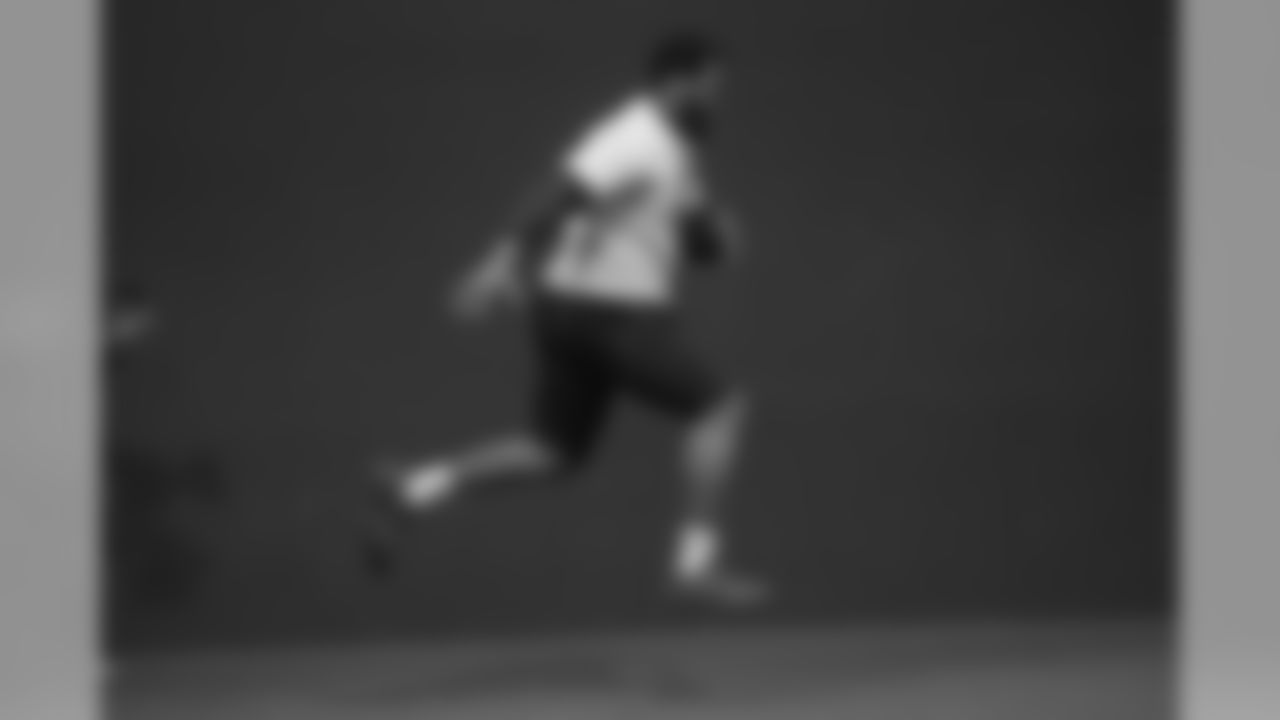
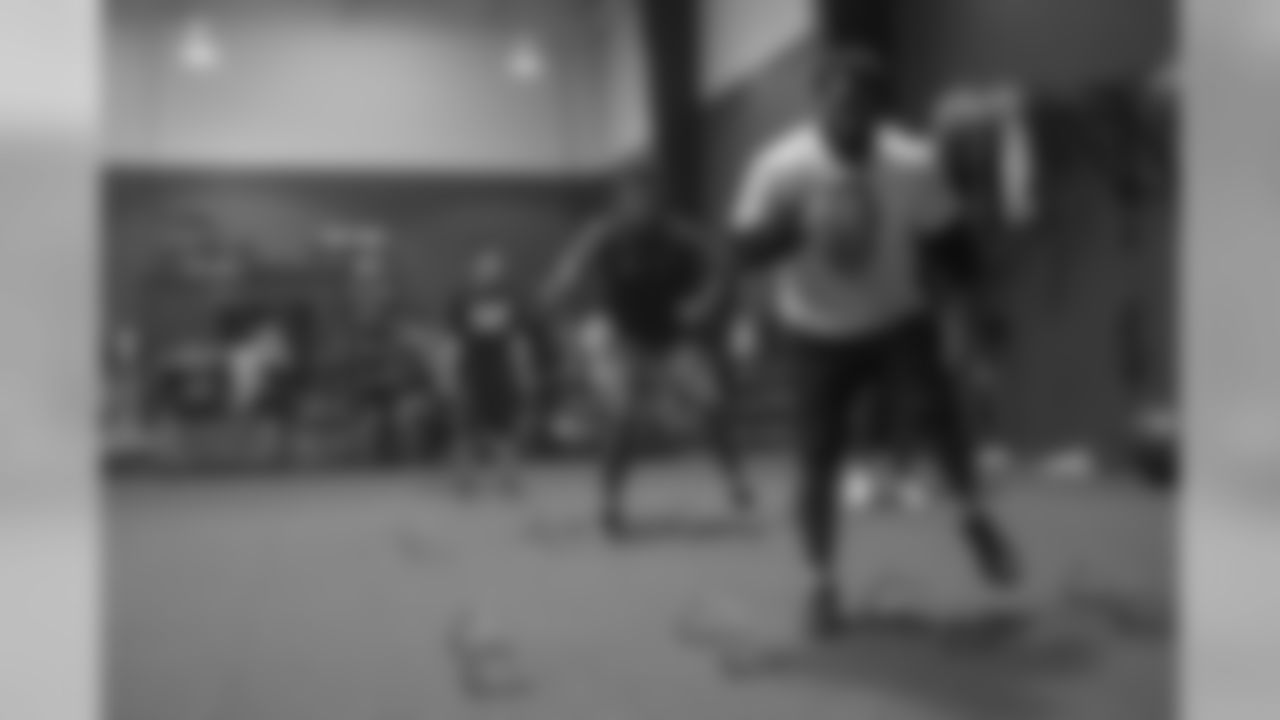
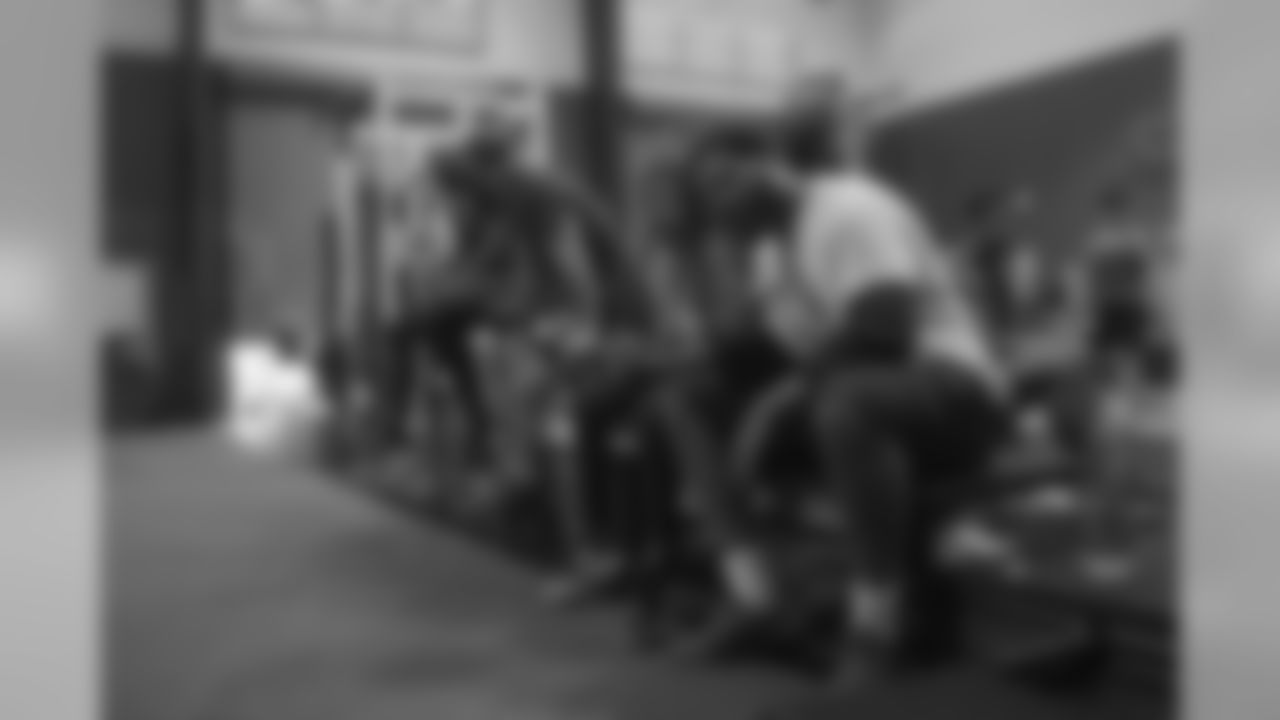

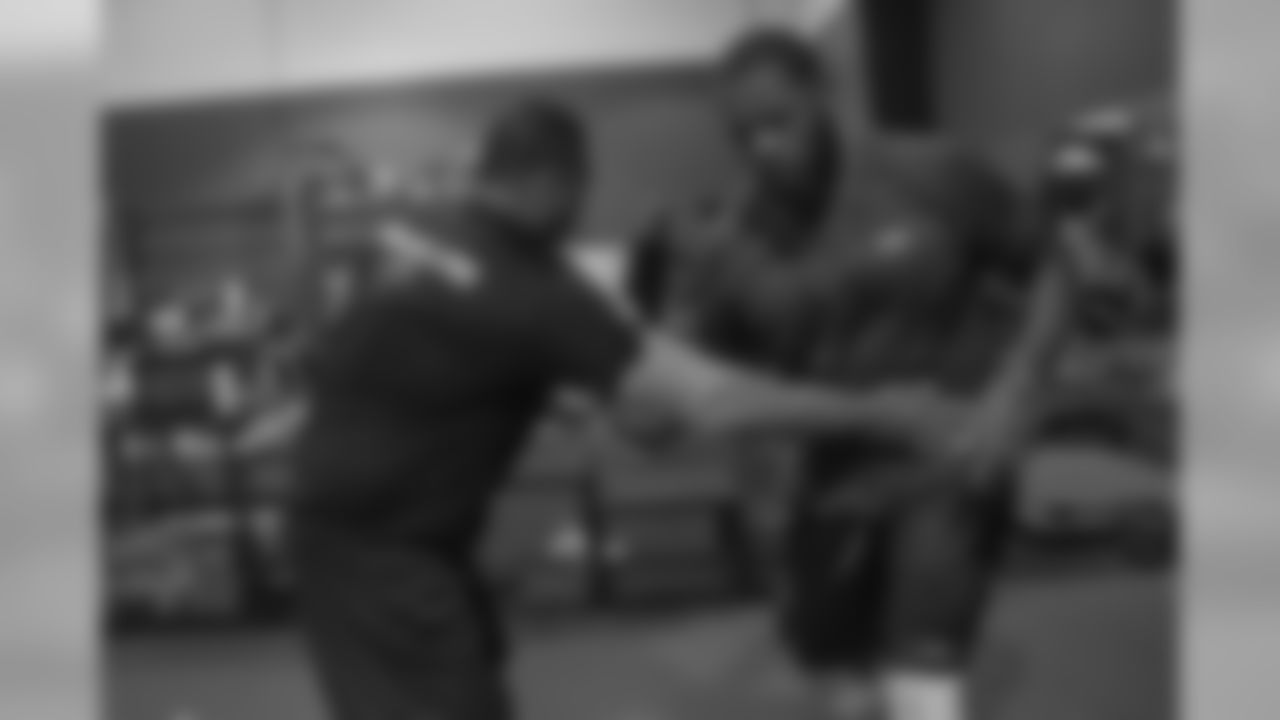
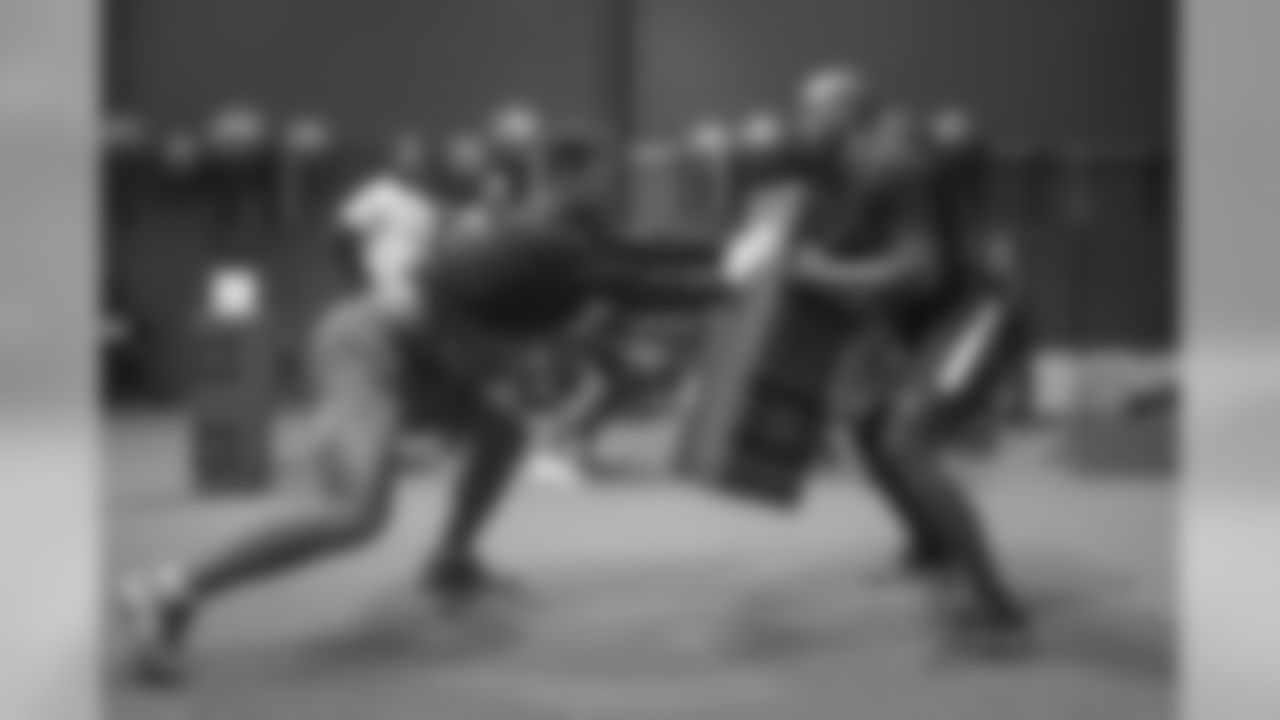
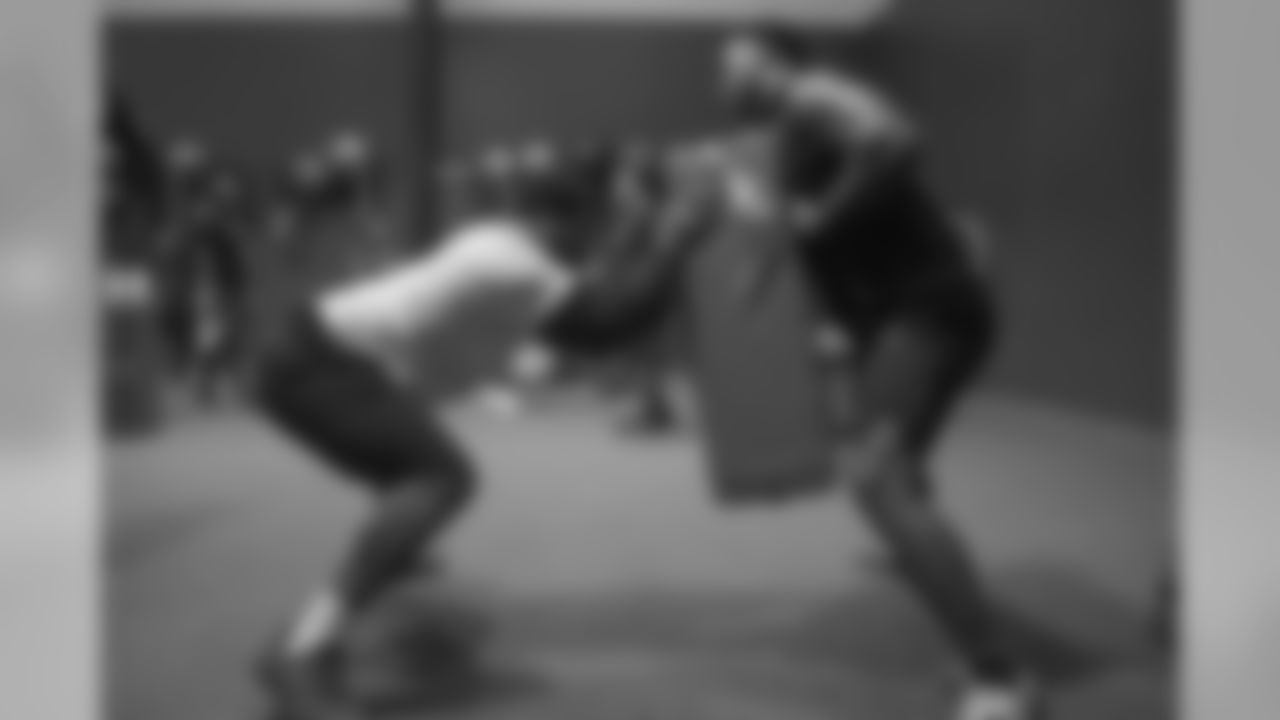
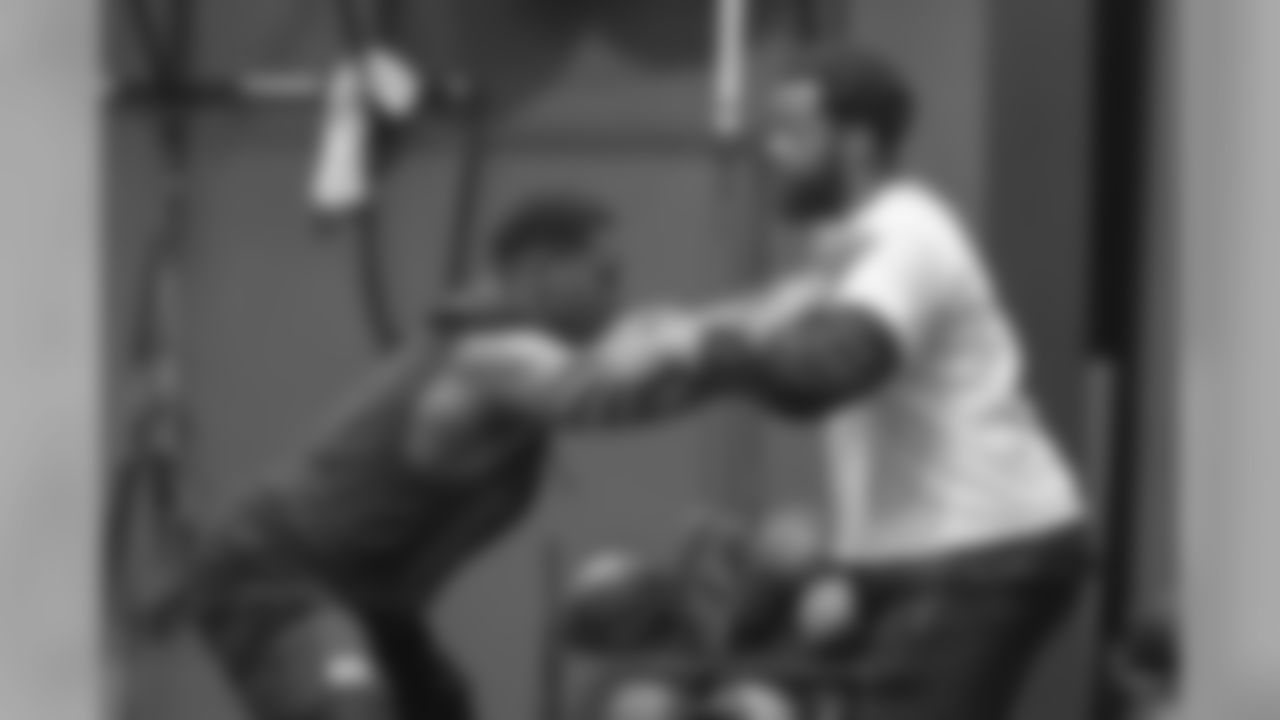
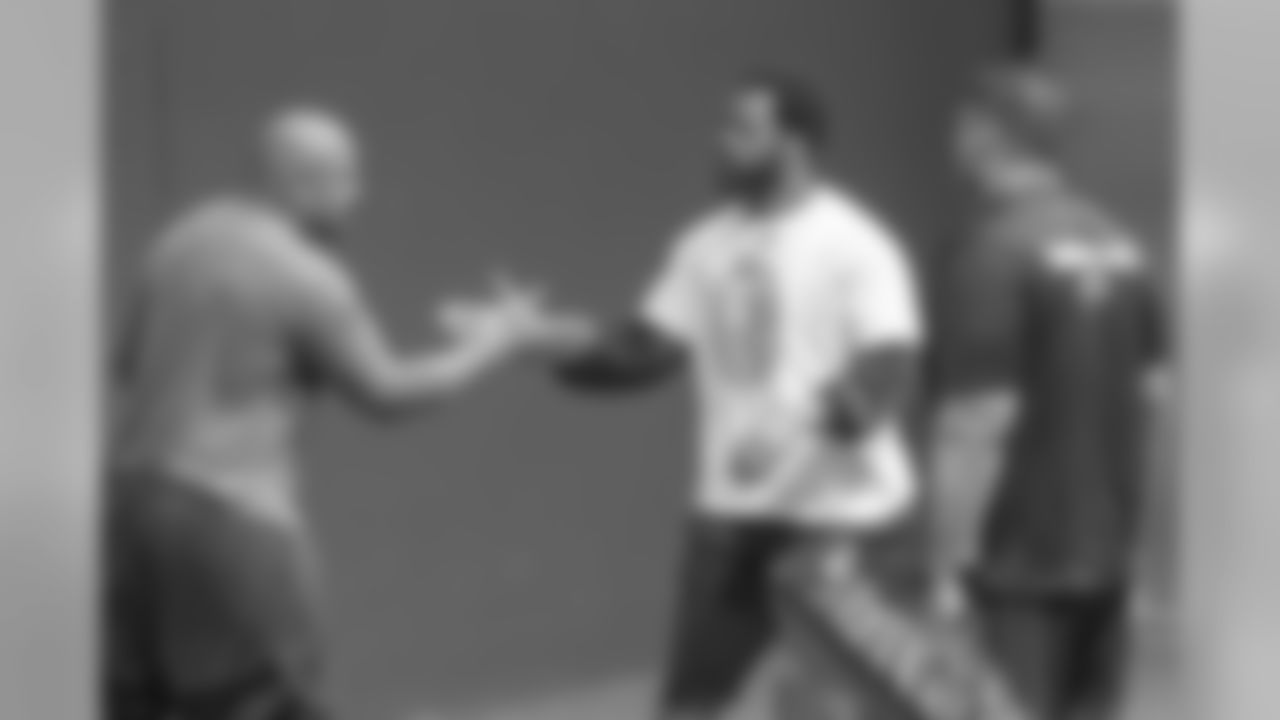
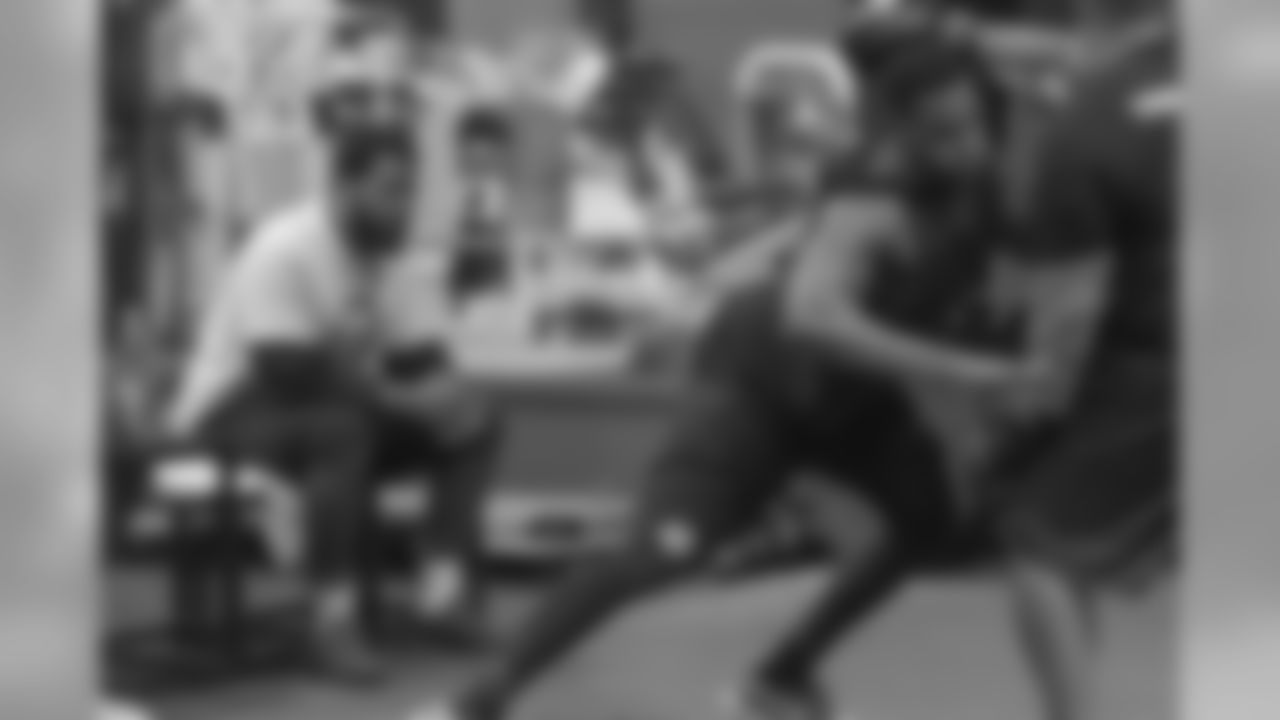
"If I Seem Edgy, I Want You To Know, That I Never Mean To Take It Out On You"
For all the good Bennett has done and will continue to do, sometimes he can't help but get in his own way. He doesn't apologize for his passionate side so much as he does accept that it's a part of what makes him go, part of what allows him to be one of the league's best defensive linemen despite going undrafted.
As goofy and fun-loving as Bennett is in in day-to-day life, he is not someone you want to anger when it comes to his job. There have been the occasional on-field dustups with teammates in training camp and even an occasional game. When teammate Nazair Jones had to cut a workout session short in Hawaii, Bennett showed no mercy when chiding the rookie, even though Jones was suffering from heat stroke, the result of volunteering at Bennett's camp the day before. And yes, there was an unfortunate incident with a reporter after Seattle's playoff loss in Atlanta, a heated moment for which Bennett did apologize.
"I'm just a passionate person, so passion can always boil over a little bit," Bennett said. "Sometimes as a player you want to win so much, and you want to do whatever it takes to win, so sometimes when people ask you questions about the game, you put so much into the game, and when you lose, you just don't want to answer questions about how much you put into the game. That's the part that people misunderstand about the passion that I have."
For the most part, even when Bennett toes the line, he's coming from a good place. He was hard on Jones during Monday's workout because he sees potential in the rookie and wants to push him to be his best; he scraps with teammates in camp because he is concerned an offensive lineman might unnecessarily put his or another defensive lineman's health at risk; he bristles at certain postgame questions because like many of his hypercompetitive teammates, he has a hard time getting over a loss; and he was part of an end-of-Super Bowl-XLIX skirmish because there was still time on the clock and he refused to accept defeat. Moments like those don't necessarily represent the best side of Bennett, but they're part of the total package of a person who, while complex at times, has done exponentially more good for his team and community than harm.
"Life Has Its Problems, And I Got My Share"
If you dropped in on Bennett's life right now knowing nothing of his past, you might think he has always lived a charmed life. The impressive house in paradise with an amazing view of the ocean, the beautiful family that adores him, the millions of dollars and stardom that comes with an NFL career, the respect of opponents who refer to him as one of the game's best defensive players, and yes, the Super Bowl ring. But like so many others who have reached heights such as Bennett's, he had plenty to overcome to find himself in this situation.
There were the football-related hurdles to overcome—being overshadowed as a recruit by his younger brother, struggling to earn playing time early in his career at Texas A&M, going undrafted in 2009, then being cut by Seattle early that season before catching on with Tampa Bay. But Bennett's obstacles extended far beyond football. Born to a teenage mother, Bennett grew up with almost no relationship with his birth mom.
When speaking to the young audience at his camp, Bennett told the group, "Don't let anybody tell you you can't be from a small town, your mom had you at 17, and now you're at the top of your game and you're giving to the whole world. That's my story. I'm not supposed to be here talking to y'all right now, I'm supposed to still be in Houston."
Bennett is quick to praise the job his father, Michael Sr., and stepmother, Penny, did raising him and Martellus, but as he became an adult and a father as well, he realized he was missing something and reconnected with his birth mother.
"Now I'm at a point in my life where I can forgive past transgressions," he said. "It took me a while to get to that emotional place to where I could forgive, and it has been such a great experience. It has been an emotional experience. Moments where you cry. She said she's sorry, I'm sorry, and now we're growing and it's just a beautiful thing.
"I feel like if I'm not connected to her or able to forgive her, I feel like I'm not going to be able to love my wife or love my daughters properly, because I will always have this distrust in my heart. I don't want to have that distrust. I want to be able to be open and fully committed to being a good man."
Bennett's childhood also included a seventh-month hospital stay due to serious complications caused by a ruptured appendix. While few people gain life perspective at the age of 10, Bennett believes that experience changed him for the better.
"I think that changed my outlook on life a lot," he said. "Ever since then, I've always just been happy to be alive. People are always like, 'Why are smiling so much?' I've been close to death before, and to be here now and be in the moment, to go through everything I've been through and be where I'm at now, it's just a blessing."
Of Bennett's many blessings, none are more important to him than Pele and the three girls filling the nearby pool with laughter, as well as the occasional silly arguments only siblings can manufacture. Bennett overcame plenty in his life to become a Pro Bowler, and he has worked hard to use his fame and fortune to do good in the world, but more than athlete or humanitarian, he self-identifies first as a father and husband.
"Family is so big in my life," he said. "Family is the most important thing. Not just my immediate family, the family I've built along the way of my journey. People always say, 'Michael, you've always got family around.'"
And sure enough only a few feet away watching the kids play in the pool is Jan Alexander, Rio's mother and a woman Bennett described as "being like a community mother to everybody," back in Alief.
"Family is so important to me because it's the core of everything, everything else doesn't really matter," Bennett said. "How many sacks I get, how much money I make, it doesn't matter if I can't be a great father or a great husband or a great brother or a great uncle."
RELATED
Michael Bennett and the Bennett Foundation hosted their fifth annual O.C.E.A.N sports and football camp at T.C. Ching field on the campus of the University of Hawaii in Honolulu, Hawaii.

